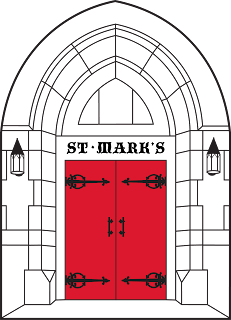OPENING
VOLUNTARY
Three settings of “A Mighty Fortress Is Our God” (Ein feste burg)
Michael
D. Costello
Three
sections of Costello’s partita around this famous Lutheran hymntune make up the
prelude: Chorale, Tricinium, and Ayre. The final movement of this partita will
be heard as the closing voluntary.
GATHERING
HYMN Salvation unto Us Has Come (Es ist das heil) ELW 590
This is one of the oldest Lutheran hymns as it appeared (with 14 stanzas) in our very first hymnal – Etlich christlich Lieder, published in 1523.
I loved the isometric version of this tune that I grew up with (in the red Service Book and Hymnal, 1958), but the rhythmic version moves me in a completely different way. The introduction is a chorale prelude by Gerhard Krapf. Krapf was drafted into the German army in 1942 and captured by the Russians. After the war, he returned to Germany and completed his music degrees. In 1953, he came to the United States to complete additional studies. He stayed in the U. S. and became an organ professor and a noteworthy composer of church music.
A
hallmark of the German reformation was an emphasis on congregational singing. Here
we follow the tradition of a chorale service. Said to be an innovation
of Martin Luther, these services take traditional liturgical texts and render
them as hymns. ELW has a version of this Kyrie with a Slovak tune. I’ve decided
to use a German tune that will be more familiar to our community. The opening “bids”
are sung to a tone found in Evening Prayer.
The canticle of praise is the very familiar “All Glory Be to God on High.” Nikolaus
Decius (1458 – ca. 1561) is credited as the composer, but he based it on a
chant tune from the 10th century.
HYMN
OF THE DAY A Mighty Fortress Is Our God (Ein feste burg) ELW 503
Today we are singing the rhythmic version of this tune. If you grew up with the isometric version, that transition can be a little difficult. Listen to the introduction for where the notes are long and where they are short. This rhythmic alternation gives the hymn a dance-like quality that is very rewarding!
This
rhythmic version is much closer to Martin Luther’s original version than the
isometric version is. Over time, tunes from the Reformation began to be sung
more slowly and the short notes elongated to the same length as the long notes.
Today’s Gathering Hymn is another version of a tune that has rhythmic and
isometric versions.
MUSICAL
OFFERING Lord, Keep Us Steadfast in Your Word
setting,
Jeremy Bankson
OFFERING
HYMN Now Thank We All Our God ELW 840
Nun
danket all Gott
is another example of a chorale that has rhythmic and isometric versions. Here
we sing the isometric one.
COMMUNION
HYMN O Lord, We Praise You (Gott sei gelobet und gebenedeiet) ELW 499
The
introduction is a bicinium (a two-voice piece) by Kenneth T. Kosche that leads
us into the singing of this happy hymn. I’ve only learned this hymn in recent
years, but it has become a favorite.
SENDING
HYMN Rise, O Church, Like Christ Arisen (Surge Ecclesia) ELW 548
This
hymn was written for the 50th anniversary of the Lutheran Church of
the Resurrection in Roseville, Minnesota. The text is by Susan Palo Cherwien.
The tune was written by Resurrection’s cantor, Timothy J. Strand.
Why does the church reform? Perhaps it is to “remember well the future God has
called us receive” – and then to live into it with a living faith.
CLOSING
VOLUNTARY Fughetta on “A Mighty Fortress Is Our God”
Michael
D. Costello
















